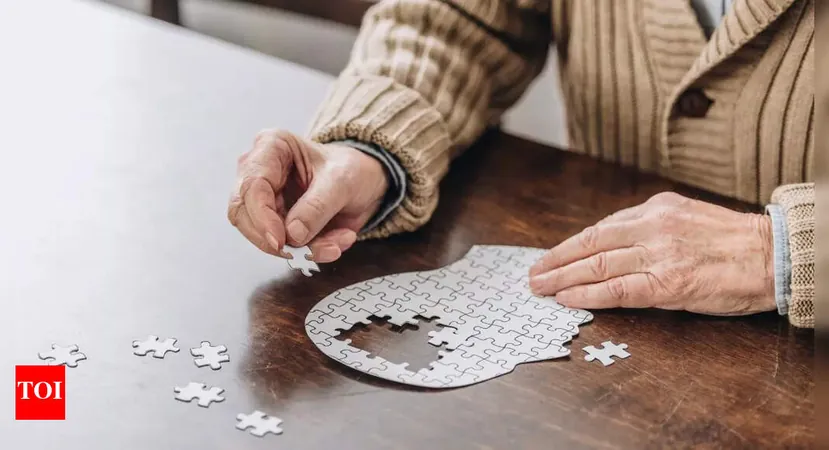
5 Surprising Signs That Could Signal Dementia Risk—Are You Missing Them?
2025-08-24
Author: Siti
Unlocking the Early Warnings of Dementia
In a world where memory loss is often the first beacon of dementia awareness, Dr. Bing, a distinguished neurologist, shines a light on five subtle yet significant signs that might herald early brain changes associated with dementia. These overlooked indicators could be fundamental in safeguarding your cognitive health for the long run.
1. Struggling to Balance?
Think you can stand on one leg for 10 seconds? If not, it could indicate early brain changes. Balance is managed by areas in the brain like the cerebellum and basal ganglia—regions often compromised in dementia. A revealing study from Japan discovered that individuals with poor balance were more likely to have lower cognitive abilities due to small-vessel disease in the brain. Remember, consistent balance issues could signal neural decline.
2. Trouble Rising from a Chair?
The simple task of standing up from a chair without using your hands can offer crucial insights into your health. Dr. Bing notes that trouble with this 'sit-to-stand' test may point to lower body strength, which is closely tied to cognitive risks. Research from the UK Biobank found a direct correlation between slower chair-stand times and increased likelihood of developing dementia. Don't overlook your leg strength—it could be an important early warning sign.
3. Are You Acting Out Your Dreams?
If you find yourself kicking or shouting in your sleep, you might be displaying signs of REM Sleep Behavior Disorder (RBD). This condition, where normal REM paralysis fails, could indicate early degeneration in the brainstem. Alarmingly, long-term studies show that almost 80% of those with idiopathic RBD may develop Parkinson’s disease or dementia within a decade. If this sounds familiar, consult a sleep specialist without delay.
4. Feeling Persistently Lonely?
Loneliness may seem trivial, but it can exacerbate the risk of dementia. Recent studies have linked chronic feelings of isolation to a staggering 40% increase in dementia risk. Brain scans in lonely individuals reveal diminished grey matter in memory-related areas, amplifying the urgency for connection and social engagement. Don’t let loneliness turn into cognitive decline—reach out and engage.
5. Is Your Grip Weakening?
Your grip strength can be a vital indicator of overall health. Difficulty with simple tasks like opening jars can suggest weakness linked to cognitive decline. A significant study published in JAMA Network Open uncovered that weaker grip strength correlates with smaller brain volumes and lower cognitive performance. Fortunately, you can combat this decline through resistance training and a protein-rich diet, ultimately bolstering both your grip and brain health.
Stay Informed and Proactive
Recognizing these signs early could be life-changing for your cognitive health. Don't ignore the small stuff—your brain might be trying to tell you something important. Stay vigilant, proactive, and seek professional advice when necessary!


 Brasil (PT)
Brasil (PT)
 Canada (EN)
Canada (EN)
 Chile (ES)
Chile (ES)
 Česko (CS)
Česko (CS)
 대한민국 (KO)
대한민국 (KO)
 España (ES)
España (ES)
 France (FR)
France (FR)
 Hong Kong (EN)
Hong Kong (EN)
 Italia (IT)
Italia (IT)
 日本 (JA)
日本 (JA)
 Magyarország (HU)
Magyarország (HU)
 Norge (NO)
Norge (NO)
 Polska (PL)
Polska (PL)
 Schweiz (DE)
Schweiz (DE)
 Singapore (EN)
Singapore (EN)
 Sverige (SV)
Sverige (SV)
 Suomi (FI)
Suomi (FI)
 Türkiye (TR)
Türkiye (TR)
 الإمارات العربية المتحدة (AR)
الإمارات العربية المتحدة (AR)